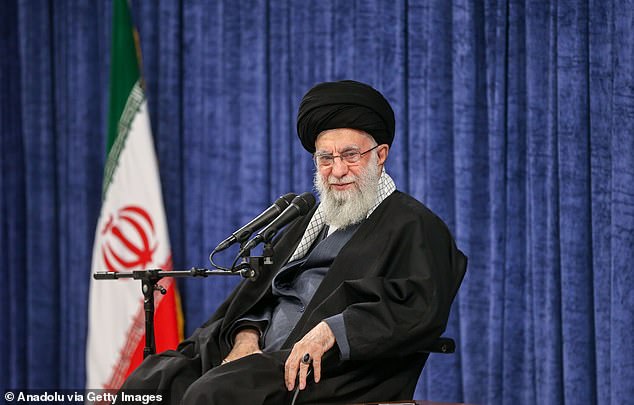Iran is reportedly preparing a revenge attack against Israel in the next two days after two Iranian generals were killed in an attack in Syria.
The country has publicly threatened to hit back at Israel over last week’s attack in Damascus that Tehran says was an Israeli airstrike on a diplomatic building.
A person briefed by the Iranian leadership said the Wall Street Journal that while the attack plans are being discussed, no decision has been made.
An adviser to the Supreme Leader, Ayatollah Ali Khamenei, told the outlet: “The attack plans are before the Supreme Leader and he is still weighing the political risk.”
Israel was widely blamed for an April 1 attack that destroyed Iran’s consulate building in Damascus and killed seven Revolutionary Guards, including the two generals.
Iranian Supreme Leader Ayatollah Ali Khamenei delivers a speech at a program held at Imam Khomeini Khosseini Hosseini in Tehran, Iran, on April 3, 2022.
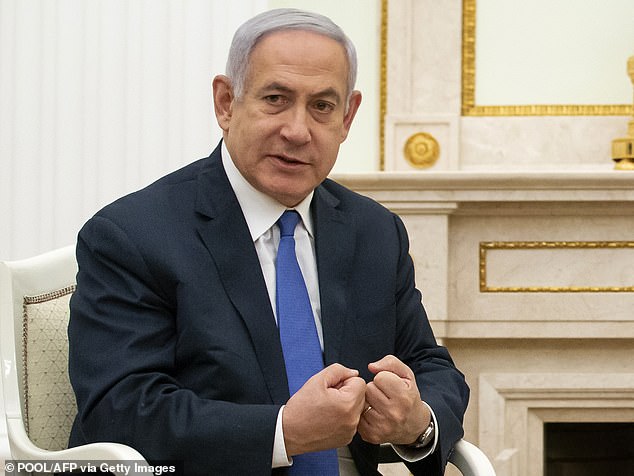
Israel was widely blamed for an April 1 attack that destroyed Iran’s consulate building in Damascus and killed seven Revolutionary Guards.
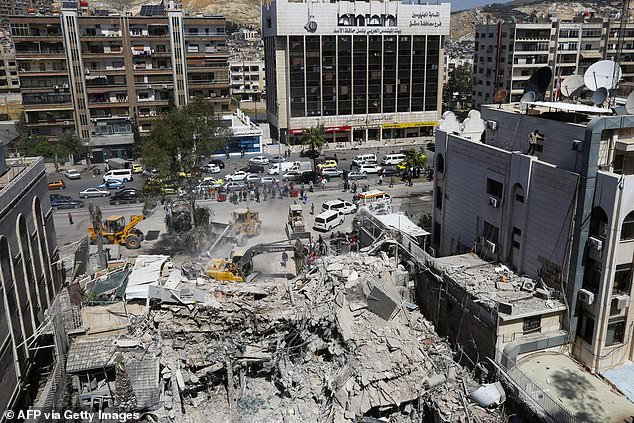
Rescuers search through the rubble of a building attached to the Iranian embassy a day after an airstrike in Damascus on April 2, 2024.
Iran’s Supreme Leader Ayatollah Ali Khamenei warned Wednesday that Israel “must and will be punished,” days after one of his advisers said Israeli embassies “are no longer safe.”
Israeli Foreign Minister Israel Katz quickly responded on social media site X that “if Iran attacks from its territory, Israel will respond and attack Iran.”
Days after Israel strengthened its air defenses and suspended permits for combat units, the United States also warned of the risk of an attack by Iran or its allied groups at a time when tensions in the Middle East have soared.
Iran is “threatening to launch a significant attack against Israel,” President Biden said Wednesday, pledging “fierce” support for its key regional ally despite diplomatic tensions over Israel’s military conduct in Gaza.
The head of US Central Command, Michael Kurilla, was in Israel on Thursday to discuss the situation with Defense Minister Yoav Gallant, the Pentagon said.
“We warned Iran,” White House press secretary Karine Jean-Pierre said in a briefing without elaborating.
Monday’s attack leveled a five-story building adjacent to the Iranian embassy in Damascus.
General Mohammad Reza Zahedi was among those killed in the attack, having held a succession of commands in the foreign operations arm of the Iranian Revolutionary Guard Corps, the Quds Force.
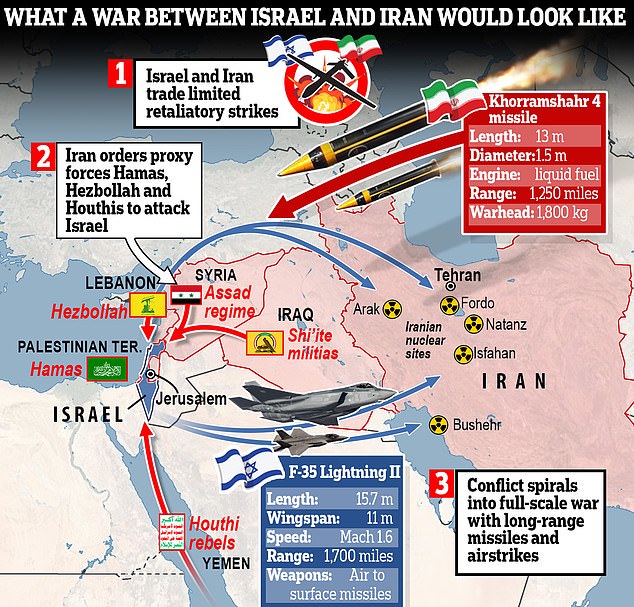
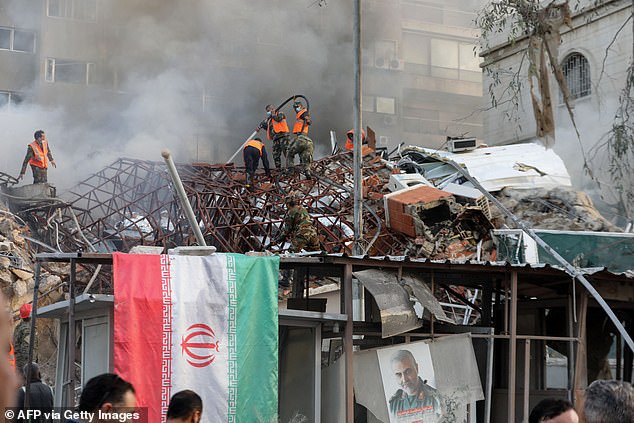
Iran warned its archenemy Israel on April 2 that it will punish an airstrike that killed seven Revolutionary Guards, two of them generals.
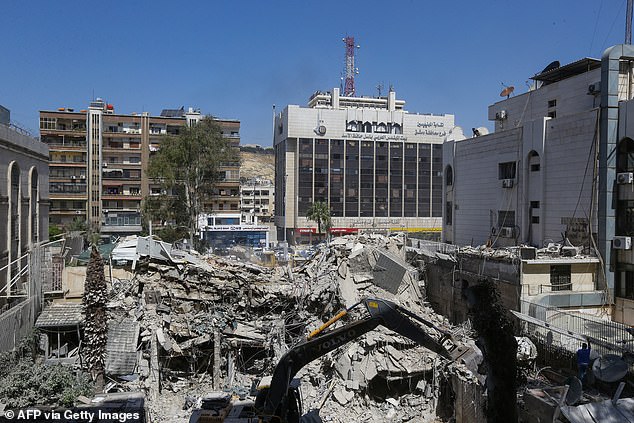
The rubble of a building attached to the Iranian embassy, a day after an airstrike in Damascus on April 2, 2024.
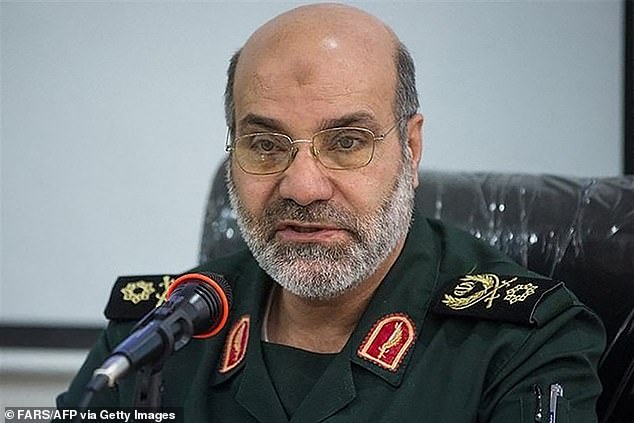
Iranian Brigadier General Mohammad Reza Zahedi Killed in Israeli Airstrikes on the Syrian Capital
The US embassy in Israel has since announced that it was restricting the movements of its diplomats over security fears.
They said that “out of an abundance of caution” staff and their families were not allowed to make personal trips outside the Tel Aviv, Jerusalem and Beersheeva areas “until further notice.”
During a visit to an air base in central Israel, Netanyahu spoke of “difficult times” on multiple fronts.
“We are in the midst of the war in Gaza that continues in full force… but we are also preparing for challenging scenarios from other scenarios,” he said in comments released by his office.
Iran enjoys a huge advantage in terms of personnel, having a collective active and reserve army of approximately 1.2 million troops, as well as thousands and thousands of artillery systems.
Meanwhile, Israel has around 750,000 military personnel and assets at its disposal, but hundreds of thousands of them are already involved in operations in and around Gaza, while others maintain a presence in the north to protect themselves from Hezbollah border attacks. in Lebanon.
Although Israel is outnumbered, it is by no means outgunned: the IDF has more than 3,000 tanks in its ranks, roughly double the number believed to be in service in Iran.
German Foreign Minister Annalena Baerbock urged “maximum restraint” and Lufthansa said it had extended a temporary suspension of flights to Iran until Saturday.
Iranian Foreign Minister Hossein Amir-Abdollahian said he had received phone calls on Thursday from Baerbock, as well as his British and Australian counterparts.
Regional tensions have been stoked by the Gaza war that began after Hamas’ unprecedented Oct. 7 attack on Israel that left 1,170 dead, mostly civilians, according to Israeli figures.

